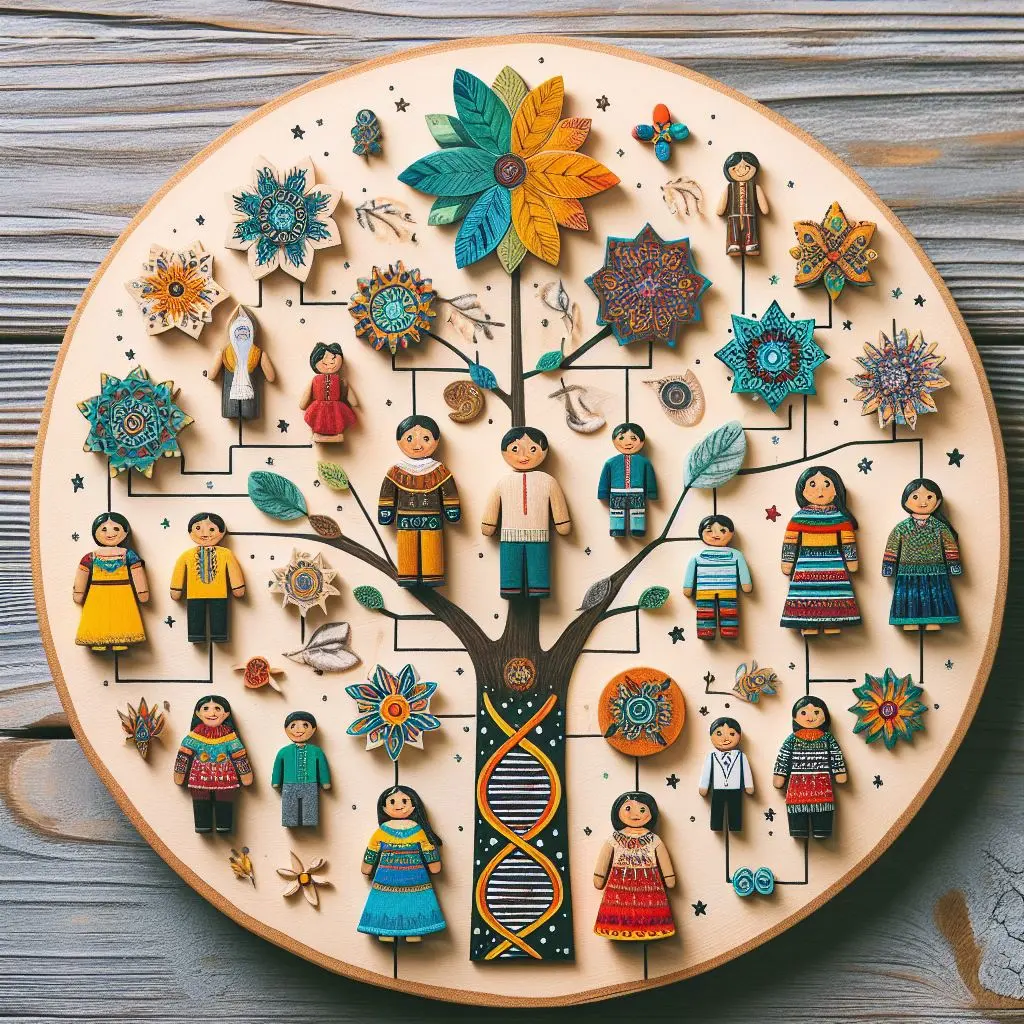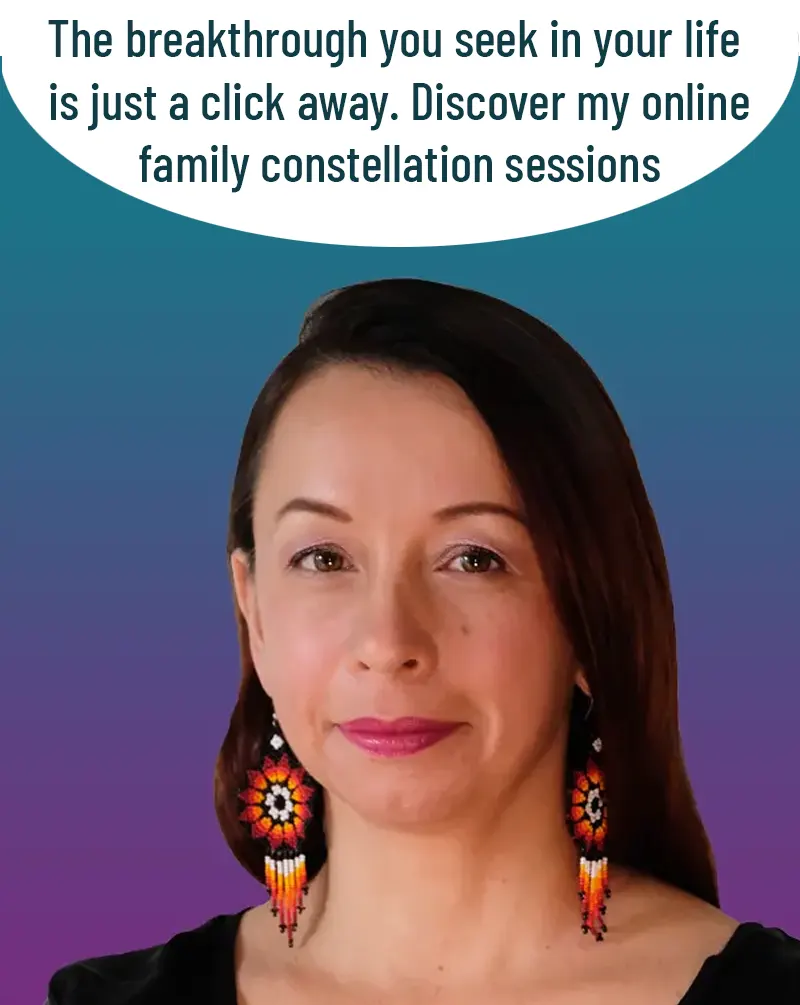Why Your Migratory Pain Lives in Your DNA: Epigenetics and Inherited Trauma
Published January 21, 2025

Table of Contents:
- Why Your Migratory Pain Lives in Your DNA: The Science of Inherited Trauma
- What science has finally confirmed: trauma is inherited
- The discoveries that will change how you see your pain
- 💭 REFLECTION QUESTION
- Mark Wolynn: decoding the language of inherited trauma
- Stories you’ll recognize in your own life
- 🎯 DO YOU RECOGNIZE YOURSELF IN ROSA’S STORY?
- 💔 DO YOU LIVE WITH IMPOSTOR SYNDROME?
- 🆘 WERE YOU THE ‘TRANSLATOR CHILD’ OR THE ‘PREMATURE ADULT’?
- The most important message
- Additional resources
- 🌟 YOUR NEXT STEP: CHOOSE YOUR PATH OF HEALING
- Why Your Migratory Pain Lives in Your DNA: The Science of Inherited Trauma
- What science has finally confirmed: trauma is inherited
- The discoveries that will change how you see your pain
- 💭 REFLECTION QUESTION
- Mark Wolynn: decoding the language of inherited trauma
- Stories you’ll recognize in your own life
- 🎯 DO YOU RECOGNIZE YOURSELF IN ROSA’S STORY?
- 💔 DO YOU LIVE WITH IMPOSTOR SYNDROME?
- 🆘 WERE YOU THE ‘TRANSLATOR CHILD’ OR THE ‘PREMATURE ADULT’?
- The most important message
- Additional resources
- 🌟 YOUR NEXT STEP: CHOOSE YOUR PATH OF HEALING
Why Your Migratory Pain Lives in Your DNA: The Science of Inherited Trauma
What science has finally confirmed: trauma is inherited
For years grandmothers knew it. Healers knew it. Shamans knew it.
Trauma is passed down from generation to generation as an invisible inheritance.
And now, at last, Western science is confirming what ancestral wisdom always knew.
The discoveries that will change how you see your pain
Dr. Rachel Yehuda, a brilliant neuroscientist from the Mount Sinai School of Medicine, did something extraordinary: she studied the children and grandchildren of Holocaust survivors.
What she discovered helps us understand why you carry pain that isn’t entirely yours.
What Dr. Yehuda found:
🧬 The children of survivors showed specific epigenetic changes
🧬 These changes were related to the stress response
🧬 Trauma alters gene expression without changing the DNA itself
🧬 These modifications are biologically transmitted to the next generations
What does this mean for your migrant heart?
It means you’re not imagining things. You’re not weak. You don’t just need to “get over it.”
Your cells carry the memory of:
- Your grandparents fleeing revolution
- Your parents crossing borders in fear
- Your great-grandmother leaving her hometown in tears
- Everyone who came before you and paid the price of uprooting
You’re not inventing your pain. You inherited it biologically. And it’s time to release it.
💭 REFLECTION QUESTION
Have you ever wondered why you feel fears that have no logical explanation in your own life? Or why you carry guilt for choices made out of love?
If your answer is yes, you’re not imagining it.
You’re carrying unprocessed pain from previous generations.
And you deserve to be free from it.
Mark Wolynn: decoding the language of inherited trauma
Mark Wolynn, director of the Family Constellation Institute in San Francisco and author of the international bestseller “It Didn’t Start with You” (translated into 39 languages), has worked for more than 20 years with people just like you.
His book documents something I’ve seen thousands of times in my own practice:
“Many of us are reliving the tragedies of previous generations without making the connection. Depression that feels like ours but isn’t. Fears we carry that belong to our ancestors.”
Stories you’ll recognize in your own life
Let me show you real examples of how migratory trauma is inherited:
1. The guilt of the “economic survivor”
Story of Rosa, 38 years old:
“Alejandra, I don’t understand what’s happening to me. My great-grandfather crossed the border escaping extreme poverty. My grandfather worked in the fields all his life. My father too.
I studied, I have a good job, I earn well.
But every time I get paid, I feel terrible guilt. As if I don’t deserve to have more than they did. Then I spend everything, go into debt, and start over.”
Systemic origin: Rosa is unconsciously loyal to her ancestors’ suffering. Her soul believes, “If they suffered, I don’t have the right to prosper.”
🎯 DO YOU RECOGNIZE YOURSELF IN ROSA’S STORY?
Do you feel guilt when things go well? Do you self-sabotage just before reaching your goals? Do you lose or spend money for no clear reason?
It’s not lack of discipline. It’s not conscious self-sabotage.
It’s unconscious loyalty to ancestral suffering.
Through the León Method Holistic Shamanic Healing, I work specifically with these inherited prosperity blocks.
2. The fear of losing everything (even when you’re safe)
Story of Carlos, 45 years old:
“I have two jobs, savings, my own home. But I can’t sleep. I live terrified that everything will collapse. I hoard things ‘just in case.’ I can’t enjoy what I have. My wife says I live as if war were about to start.”
Systemic origin: Carlos inherited the fear of his grandparents, who lost everything during the civil war. His body lives in permanent survival mode, even though his current reality is safe.
3. “I don’t deserve to be here”: the migrant impostor syndrome
Story of Ana, 32 years old, attorney:
“I graduated with honors. I work at a prestigious firm. But every day I feel like I’m about to be ‘found out’ and kicked out. I feel like a fraud. Like I don’t belong. Like someone will realize I shouldn’t be here.”
Systemic origin: Ana carries her undocumented parents’ fear of deportation. Even though she was born here and has all her papers, her nervous system lives in the inherited terror of ‘being discovered and expelled.’
💔 DO YOU LIVE WITH IMPOSTOR SYNDROME?
Do you feel like you’ll be ‘discovered’ any moment? Do you live in constant fear of losing what you’ve built? Does your success feel fake?
My dear, this isn’t personal insecurity.
It’s inherited fear from your parents or grandparents who lived the real threat of being expelled, persecuted, or rejected.
Your body is reacting to a threat that NO LONGER EXISTS in your current reality — yet it lives on in your DNA.
4. The child who raised their parents: migratory parentification
Story of Lupita, 28 years old:
“Since I was 7, I was my parents’ interpreter. I translated at the doctor, at school, at the bank. I made decisions that weren’t mine to make. Now as an adult, I can’t say ‘no’ to anyone. I feel responsible for everything and everyone. I’m exhausted but can’t stop.”
Systemic origin: Family roles were reversed out of necessity. Lupita became the parent to her parents. Now her system believes her worth depends on carrying others’ responsibilities.
🆘 WERE YOU THE ‘TRANSLATOR CHILD’ OR THE ‘PREMATURE ADULT’?
Did you grow up being more responsible than your parents? Did you translate, make important decisions, or care for siblings as a child? Do you struggle to set boundaries or say ‘no’?
Migratory parentification steals your childhood and leaves you with chronic over-responsibility that drains you in adulthood.
In my sessions, I work specifically with the inner child who had to grow up too soon.
The most important message
Dear migrant heart, listen closely:
NONE OF THIS IS YOUR FAULT.
You didn’t choose to inherit this trauma. You didn’t decide to carry these fears. You didn’t ask to bear the pain of generations in your body.
But here’s the power: YOU CAN CHOOSE TO HEAL IT.
Not just for yourself — but for everyone who came before, and everyone who will come after.
When you heal, you free seven generations behind you and seven generations ahead.
That’s the promise of family constellations.
Additional resources
📹 Watch this video on healing transgenerational migratory trauma
📖 Learn more: How Ancestral Healing Transforms Your Life
📚 Recommended readings:
- It Didn’t Start with You — Mark Wolynn
- Even if it Costs Me My Life — Stephan Hausner
- The Body Keeps the Score — Bessel van der Kolk
🌟 YOUR NEXT STEP: CHOOSE YOUR PATH OF HEALING
You can be the one who breaks the cycle.
The one who heals. The one who liberates. The one who says:
“The pain ends with me. The blessing begins with me.”
Are you ready to be that person?
👉 YES, I’M READY TO HEAL – BOOK NOW
About Alejandra León
** Creator of the León Method of Holistic-Shamanic Healing, integrating family constellations, transpersonal psychology, and shamanic energy healing.
I have helped hundreds of migrants release transgenerational trauma and live fully, without guilt.
Keywords: transgenerational trauma, migratory epigenetics, Rachel Yehuda, Mark Wolynn, It Didn't Start with You, family constellations near me, constellation therapy, emotional inheritance, ancestral healing
Did you recognize any of these patterns in your life? Leave a comment — your story might help others recognize theirs.



